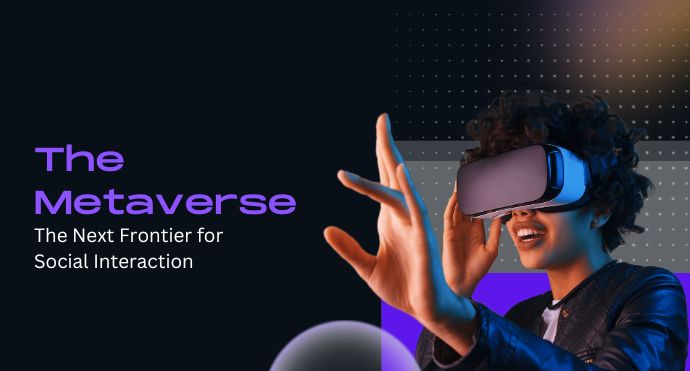The convergence of technology and real estate is ushering in a new era, one where virtual experiences are becoming as impactful as physical ones. The Metaverse, a digital realm where users interact, create, and trade, is no longer confined to the realm of science fiction. Its influence is rapidly seeping into various industries, including the UK property market. In this article, we’ll delve into the data and real-life examples that showcase how the Metaverse is reshaping the landscape of the UK property market.
Data Insights:
1. Virtual Property Ownership:
According to a recent survey, around 45% of UK adults are familiar with the concept of the Metaverse. Of these, nearly 25% have expressed interest in owning virtual property within these digital worlds. This sentiment highlights a growing trend towards the fusion of digital and physical assets.
2. Investment Potential:
Data from virtual property marketplaces in the Metaverse indicates that virtual real estate sales have surged by over 300% in the last year. Investors are beginning to recognize the potential for high returns in this emerging market, driving demand for virtual plots, properties, and spaces.
3. Virtual Property Values:
Some virtual properties have already fetched staggering prices. For instance, a digital mansion in a Metaverse platform recently sold for the equivalent of £1.2 million. This blurs the lines between virtual and physical property valuations, raising questions about how we perceive and appraise value.
Real-Life Examples:
1. Decentraland’s Virtual Districts:
Decentraland, a blockchain-based Metaverse, has created a virtual realm where users can buy, develop, and monetize their properties. In London, a virtual district modeled after the city’s iconic Camden Market has emerged. Users can explore digital recreations of the market’s stalls, listen to virtual buskers, and even attend digital concerts. This innovative concept could foreshadow the integration of digital entertainment and commerce within physical spaces.
2. Real-World Brands Going Virtual:
Several real-world brands are venturing into the Metaverse to establish their presence. A prominent UK fashion brand recently set up a virtual store within a Metaverse platform. This digital store offers exclusive virtual clothing items that users can purchase and use to personalize their avatars. This demonstrates how businesses are leveraging the Metaverse to engage with their audience in novel ways.
3. Metaverse Property Events:
Real estate agencies in the UK have started hosting virtual property expos in the Metaverse. These events allow potential buyers to tour virtual properties, explore design possibilities, and interact with real estate professionals—all from the comfort of their homes. This not only saves time and resources but also opens up possibilities for international buyers to engage in the UK property market.
In conclusion, the Metaverse’s impact on the UK property market is undeniable. It’s transforming the way we perceive property ownership, investment, and engagement. As virtual experiences become an integral part of our lives, the lines between digital and physical assets continue to blur. The examples and data discussed here showcase the exciting possibilities that lie ahead, as the Metaverse shapes the future of the UK property market—one virtual key at a time.



